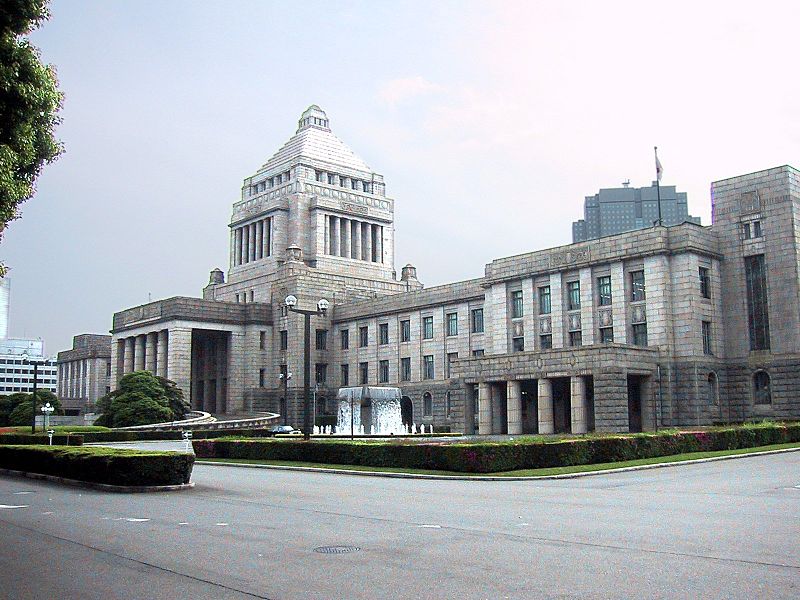
Japanese Diet (Parliament)*
With the recent appointment of Ishiba Shigeru as Japan’s new Prime Minister, it’s worth noting how his administration is set to impact regional revitalisation—a priority area for local government leaders in the UK interested in Japan. As Japan grapples with demographic shifts and economic challenges, Prime Minister Ishiba’s approach to supporting regional areas will be pivotal in shaping local governance and development in the country.
Key Policy Highlights from Ishiba’s Inaugural Address
On 4th October, Prime Minister Ishiba delivered his maiden policy speech in the National Diet, outlining his vision for Japan’s future. Alongside discussions on political funding and national security, he placed a strong emphasis on regional policy. A key theme in his speech was the “San-kan-gaku-kin-rou-gen” (Industry, government, school, money, labour statement), a framework which seeks to unite industry, government, educational institutions, financial bodies, workers, and the media as regional stakeholders. By encouraging collaboration among these groups, the Prime Minister aims to unlock the full potential of Japan’s local areas.
Among the specific policies announced was a proposal to double the grants allocated for regional revitalisation, raising the budget from last year’s ¥100 billion to a significantly larger sum. Ishiba also outlined a 10-year intensive plan to focus on regional development, underscoring his long-term commitment to addressing the issues faced by rural communities.
Ishiba’s Track Record on Local Governance
To gain a clearer understanding of Prime Minister Ishiba’s stance on local governance, his previous speeches and parliamentary records offer valuable insights. A comparative analysis of his use of key terms like “local autonomy” (地方自治), “local public bodies” (地方公共団体), and “decentralisation” (地方分権) reveals a notable frequency of references, second only to former Prime Minister Suga Yoshihide. Before assuming office, Ishiba had used these terms 304 times in parliamentary records, significantly more than his predecessors before they become PM, such as Kishida (151 times) and Abe (36 times).
While Suga holds the top spot with 925 mentions, it’s important to note that he served as Minister for Internal Affairs and Communications, where local governance was central to his role. Excluding references made during his tenure in that role, Ishiba leads with 289 mentions compared to Suga’s 73. This suggests a deep and consistent focus on local issues from Ishiba, even without direct ministerial responsibility for local government. Ishiba was appointed to the newly created office of Regional Revitalisation Minister, in the role from 2014 for two years marking a change of focus for the Abe administration.
Japanese models for UK devolution
On 8 October 2024, Minister Ito, newly responsible for regional revitalisation, emphasised the importance of supporting proactive efforts by local governments based on their needs and feedback. This follows the government’s plan to double the subsidies for regional revitalisation. Prime Minister Ishiba, in his policy speech, stated that “local regions are the key drivers of growth” and aims to increase the subsidies in the initial budget. Minister Ito expressed his commitment to considering ways to encourage local governments’ proactive initiatives and support them through the use of this funding*
For local government stakeholders in the UK, Prime Minister Ishiba’s policies on regional revitalisation present opportunities for engagement and collaboration, especially for regions keen to strengthen ties with Japan. His emphasis on collaborative, multi-stakeholder approaches mirror the UK’s own focus on involving different sectors in regional development. UK local authorities already engaged with Japan, or those exploring new partnerships, may find that Ishiba’s regional initiatives open new avenues for cooperation.
As Ishiba’s administration progresses, UK councils and regions working with Japan can keep a close eye on how these policies unfold, particularly in regard to support for regional areas beyond major cities. The potential for deepening ties through shared approaches to local economic development and innovation could bring tangible benefits to both sides.
* https://www3.nhk.or.jp/news/html/20241008/k10014604111000.html
Akira Matsutani, Director-General
Keith Kelly, Head of PR and Communications
Japan Local Government Centre, London
*This Wikipedia and Wikimedia Commons image is from the user Chris 73 and is freely available at //commons.wikimedia.org/wiki/File:Japanese_diet_outside.jpg under the creative commons cc-by-sa 3.0 license.

